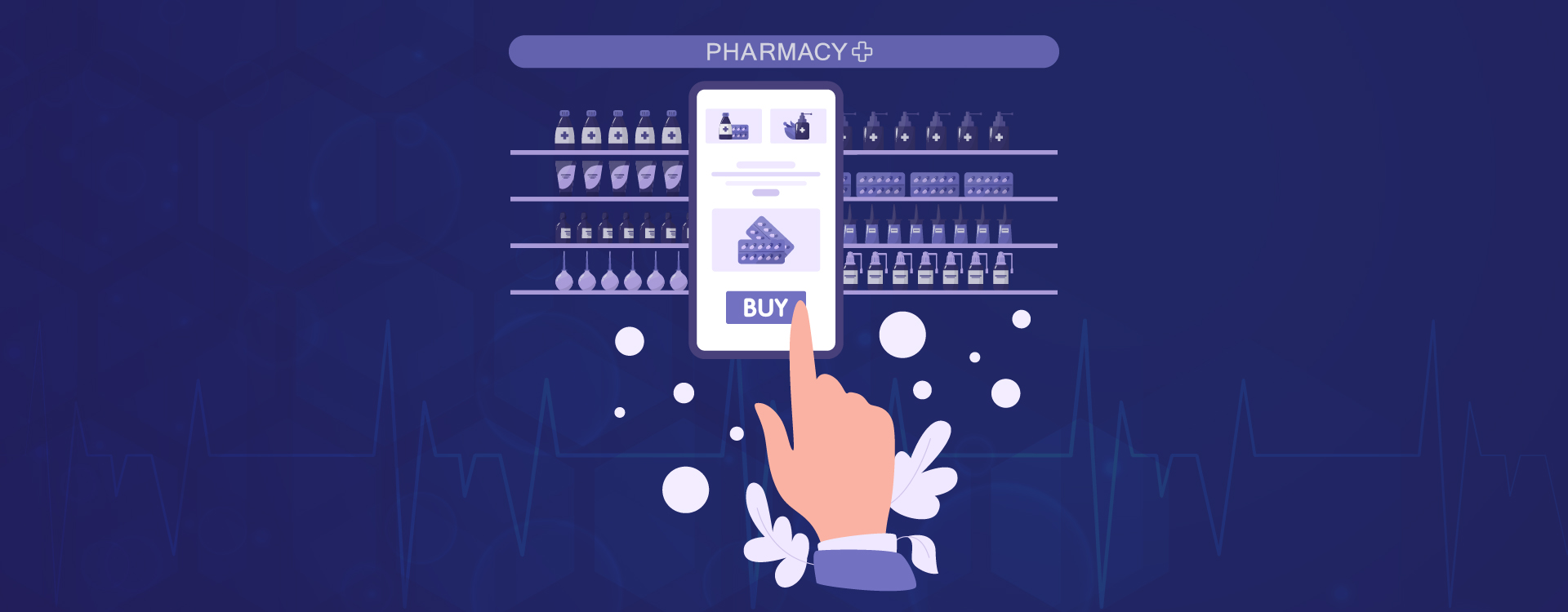Battling through a nascent 4-5 years since its inception, nobody could ever imagine that a deadly virus would usher in the growth of on-demand medicines or precisely online pharmacies in India.
The cascading effect of the virus in the second covid wave especially in the metropolitan cities coupled with regional lockdowns has crippled the supply chain that resulted in stock shortages of medicines in medical stores. Therefore, leaving people with the only option of purchasing medicines online. This has surged the sales of online pharmacies by 25-35 percent.
The future of online pharmacy in India seems promising with the revelations of a joint report released by EY and IPA (Indian Pharmaceutical Alliance) in September 2020. It says that the Indian e-pharmacy market is estimated to reach $4.5 Billion by 2025 by rapidly growing at the rate of 44 percent from 2019- 2025. The online pharma market will account for 10-12 percent of pharma sales by 2025 as compared to the 2-3 percent in 2019.
Growth Trajectory of Online pharmacies – 1mg, Netmeds and Pharmeasy
Unlike other e-commerce companies in India where delays can be considered, it is non-negotiable in e-pharma verticals.
The growth of online pharmacies can be attributed to:
- Quick turnaround of medicine deliveries
- Use of strong analytics in purchase orders and sales data
- Sharing real-time visibility of secondary data with pharma companies
- Better management of drugs inventory ensuring no lapse in medicine supplies
- Fulfilling the successful delivery of medicines.
All-under-one-roof
Besides these, online pharmacies such as Medlife (now Pharmeasy), Netmeds and 1mg are providing quality healthcare and convenience by all-under-one-roof solutions where teleconsultations, booking lab tests and purchase of medicines can take place.
Express Delivery
In the second covid wave, 1 mg, with its majority stake in Tata, has witnessed a demand surge of 40-50 times on its platform for medicines like Fabiflu and Doxzee used for treating mild Covid-19 cases.
It also plans to bring express delivery i.e. delivery of medicines within an hour to consumers. It has already begun delivering medicines within 4-5 hrs of placing an order in parts of New Delhi and Gurugram and will ramp up its express delivery operations across the country. 1mg’s total income swelled by 158 percent from Rs 19 Crore in financial year 18-19 to Rs 49 Crores in 2020.
Similarly, Reliance-owned Netmeds offers a standard quick turnaround time of 24-48 hours which sometimes stretches upto 72 hours on some platforms due to local mobility restrictions.
India’s biggest online pharma company Pharmeasy generated double revenue worth Rs 637 in 2020 as compared to Rs 340 crores in 2019.
Medlife, which was recently acquired by Pharmeasy registered a growth of 165% in revenue to Rs 363 crore in the year ended March 31, 2019.
‘‘
According to a study by EY and Indian Pharmaceutical Alliance, the pharmacy vertical in India is highly unorganised with 90-95 percent sales happening through local pharmacies.
Challenges Ahead for Online Pharmacies
No limitations for the minimum order value
The underlying challenges for online pharmacies include the high costs incurred in faster or express deliveries. In express deliveries, since there are no limitations for the minimum order value and it means emergency, the ticket size can be as low as Rs 600 as compared to the ticket size of Rs 1200 -Rs 1500 in standard deliveries. This impacts the margins.
Although express delivery increases the volume of demand, the challenge is its lower ticket size. Express deliveries are expected to break even after a period of 4-5 years.
Consumer Information Theft
The second challenge includes the theft of consumer information, which necessitates the need for robust data security or cybersecurity solutions to ensure data privacy.
Localisation is a Challenge
The third challenge includes localisation because a majority of online pharmacies provide user interfaces and support systems only in English. They will have to offer capabilities in native languages to customers for deeper penetration through apps, customer support and payment systems.
What is in it for Online Pharmacies?
The pharmacy vertical in India is highly unorganised with 90-95 percent sales happening through local pharmacies. According to a study by EY and IPA, 92 percent of rural India remains underserved who struggle to get life-saving drugs.
The report also reveals that the absence of diabetic medicines such as sitagliptin, teneligliptin and insulin leaves physicians from tier 2 and tier 3 cities with a choice of prescribing medicines as per the availability that in turn delays the treatment process.
Therefore, online pharmacies can gain a foothold in rural India by bolstering their supply chain operations and last-mile deliveries. There is no problem of demand but supply chain. For online pharmacies there is an enormous potential to serve the rural pockets with medicines that are not readily available in local rural medicine shops.





Thanks for providing briefly explanations. Many of the medicine are rarely avilable in other pharmacy
but you are providing such medicine in valuable prices that are costly in shops . Thanks a lot. Its help me a lot in saving my time and money